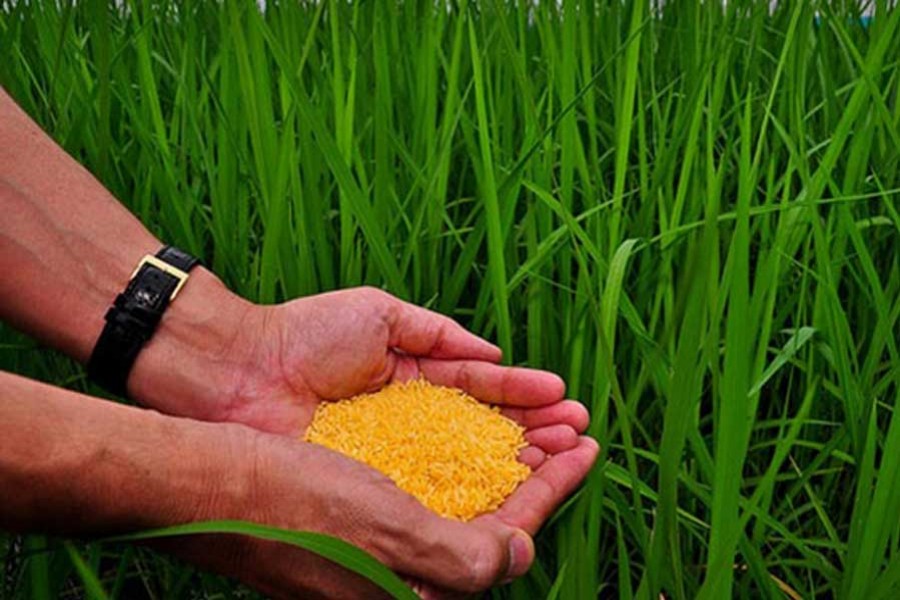The Philippines has approved the release of vitamin A enriched golden rice, paving the way for it to be cultivated commercially in the country while creating a similar opportunity for Bangladesh.
The Department of Agriculture in the Philippines approved the commercial use of rice.
Meanwhile, Bangladesh Rice Research Institute (BRRI) is reviewing an application for the crop’s biosafety approval.
Earlier, in December 2019, the Philippine government approved the Golden Rice to be used as food, feed and processing.
The approval enabled PhilRice, the national rice research institute in the Southeast Asian country, to conduct sensory evaluation research.
Before the sensory evaluation, PhilRice conducted years of rigorous lab research and field trials to ensure the highest compliance with environmental and health standards, said a press release of International Rice Research Institute on Saturday.
As a genetically modified crop, ‘golden rice’ needed environmental and health safety clearance, before it could be tried in the open fields.
This new variety of rice received food safety approvals from regulators in Australia, New Zealand, Canada, and the USA several years ago, but the Philippines is the first country to approve its commercial cultivation.
“The approval for commercial propagation of Golden Rice in the Philippines is a major milestone in our fight against vitamin A deficiency not just in the Philippines, but also in Bangladesh”, said Dr Md Shahjahan Kabir, director-general of BRRI, in the release.
“The application for the biosafety approval of golden rice in Bangladesh has been pending with the Ministry of Environment. I strongly believe that the Bangladesh Government will follow in the footsteps of the Philippines and clear the way for golden rice, which has been conceived as a sustainable, cost-effective solution for vitamin A deficiency in Bangladesh alongside other ongoing interventions,” he said.
In the Philippines, around one in five children in the poorest communities suffer from vitamin A deficiency, which also affects approximately 190 million children worldwide.
Vitamin A deficiency (VAD) is the most common cause of childhood blindness and a weaker immune system.
Golden Rice is genetically engineered to provide up to 50 per cent of the estimated average requirement (EAR) of vitamin A for young children who are most susceptible to VAD in the Philippines.
PhilRice has been working with local partners to identify market and programme-based approaches to provide Golden Rice first to the selected communities with a high prevalence of VAD and other associated micronutrient deficiencies.
It is also increasing the volume of available seeds and other remaining activities necessary to move golden rice to farmers’ fields.
Golden Rice has been developed under the Healthier Rice Program in the Philippines and Bangladesh.


